10 Reasons You Should Read It Again
"I will never read a book twice. There are just too many good books out there to read one a second time." I've heard this sentiment often. I get it. If there are so many books on my shelf that I want to read, why would I ever think about reading one again? While it might seem excessive, there are so many benefits in re-reading a book, that I want to encourage those of you who have ever thought (or have kids that are thinking) I've already read that one. Why would I read it again?
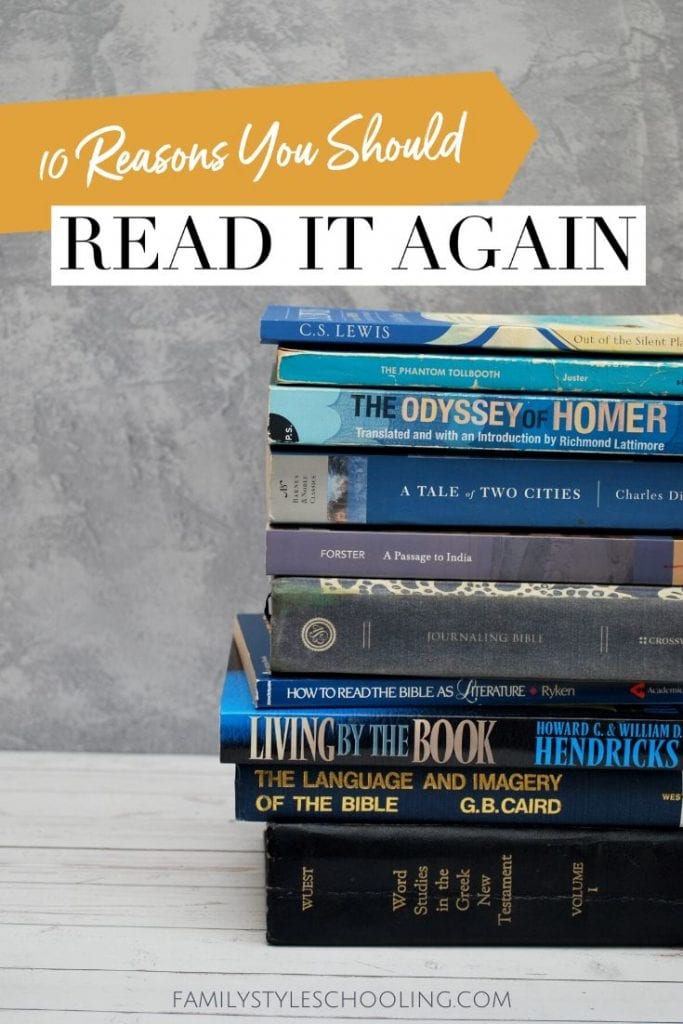
1. Repetition Builds Familiarity
Have you ever been reading a book and struggled with pronouncing the names or places? I'm currently reading C.S. Lewis' Out of the Silent Planet and with names like Hyoi, Hnohra, Hrikki, Hrinha, and Oyarsa, I'm going to need to take some good notes and read it again to really appreciate the impact of these individuals on the story. But the story is so powerful. To not read it for all that it is worth only hurts me.
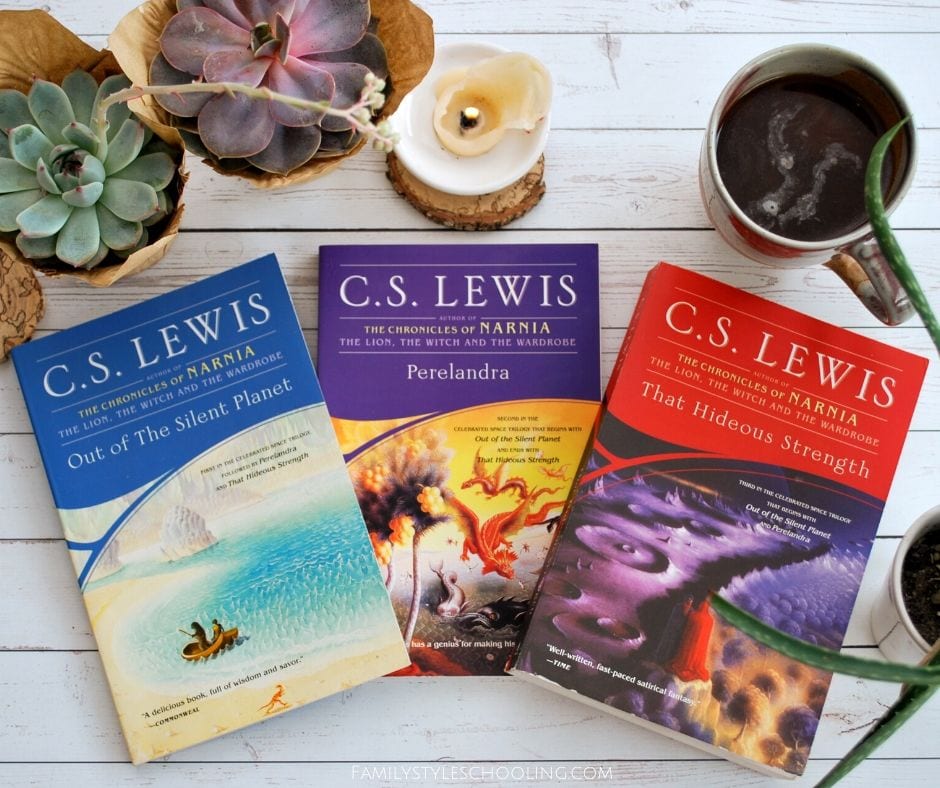
I asked my mom, who is a prolific reader, why she re-reads a book. She mentioned reading Jane Eyre three times because she loved it but couldn't fully remember what happened in the story. Complex story lines like Charlotte Bronte pens require multiple passes to comprehend.
Not every book requires repetition, but the classics are worth meeting again. They have beautiful gifts to offer their readers who come back for a second time.
2. Your Brain Is Different
Basically, you're not the same person as you were when you read the book before. We are constantly learning and growing. If you read To Kill a Mockingbird in high school, you should read it again as an adult. As a student you relate to Scout, the young daughter of the lawyer, but as an adult, you relate to her father. It is really a powerful shift.
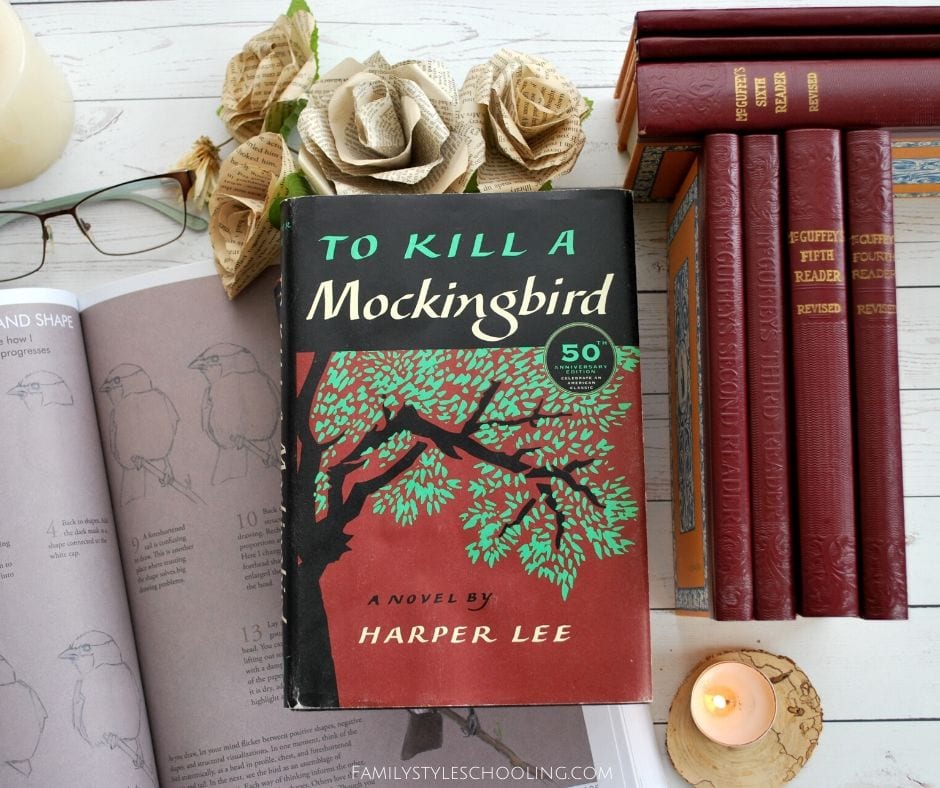
The first time I encountered Out of the Silent Planet three years ago I had no idea what a philologist was. It's not a common word! Then my son looked into linguistics as a major in college. The linguistics program at the University of Dallas is a Classical Philology Major. It's a thing! This helped me understand Ransom, the main character of this story. He's a philologist and the fact that he loves languages gives him a unique advantage when interacting with the natives of the planet he visits.
3. You're Not Worried About Plot
For the same reason that it is enjoyable to re-watch a good movie, it is enjoyable to re-read a good book. C.S. Lewis expresses this idea beautifully in his essay On Stories:
The re-reader is looking not for actual surprises (which can come only once) but for a certain surprising ness. The point has often been misunderstood...In the only sense that matters the surprise works as well the twentieth time as the first. It is the quality of unexpectedness, not the fact that delights us. It is even better the second time. Knowing that the 'surprise' is coming we can now fully relish the fact that this path through the shrubbery doesn't look as if it were suddenly going to bring us out on the edge of the cliff. So in literature. We do not enjoy a story fully at the first reading. Not till the curiosity, the sheer narrative lust, has been given its sop and laid asleep, are we at leisure to savor the real beauties.
Lewis, C. S. On Stories: and Other Essays on Literature, p. 24.
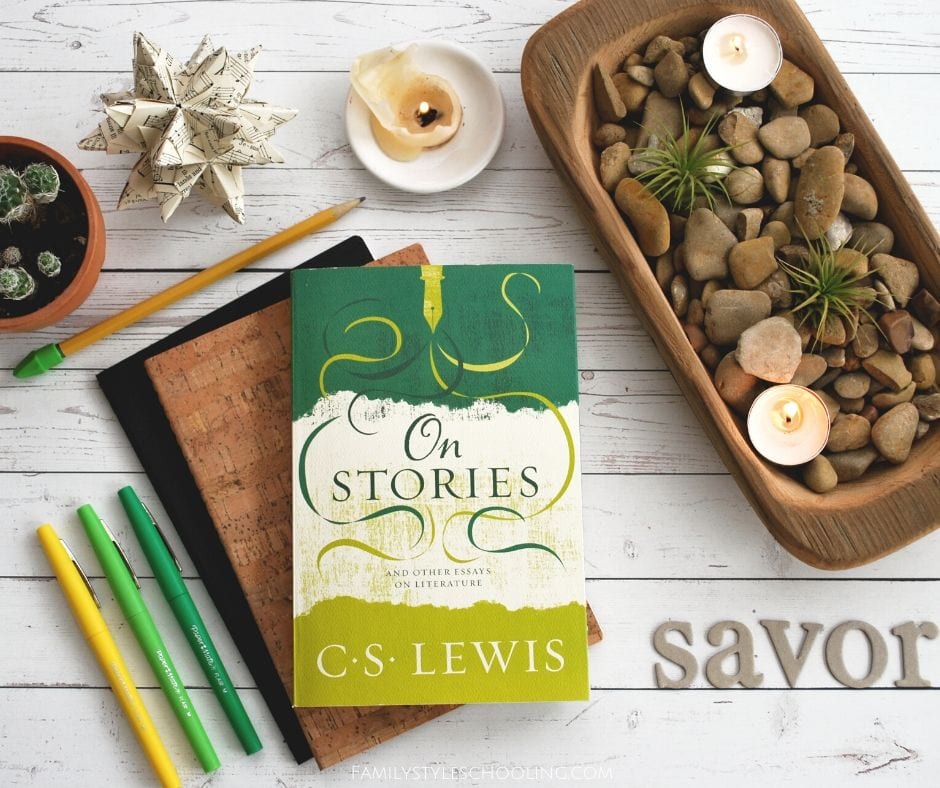
Some of my kids' favorite series have been enjoyable for this very reason. Andy still re-reads the 100 Cupboards series and the Wingfeather Saga due to the joy of knowing how the story will end. It takes some of the anticipation away, but leaves a sweet assurance that the story will end well; that you can trust the author and the story with your heart/emotions.
4. You Notice New Things
When you're trying to solve the mystery, you're looking for certain types of clues. Often you miss the mundane looking for the plot clues. When I first read The Bronze Bow I got wrapped up in Daniel's struggle that I missed many of Leah's clues that something else was going on with her. On subsequent readings, those little hints stood out like neon lights because I knew what was coming.
My middle daughter has listened to An Old-Fashioned Girl at least 15 times—maybe more. Polly is such a great character. She is sweet, and "old-fashioned" to her modern city friends. On the first reading, a young reader won't catch the subtle jabs from her cousin Fanny in the beginning. Once you really get to know Fanny, the early comments take on new meaning.
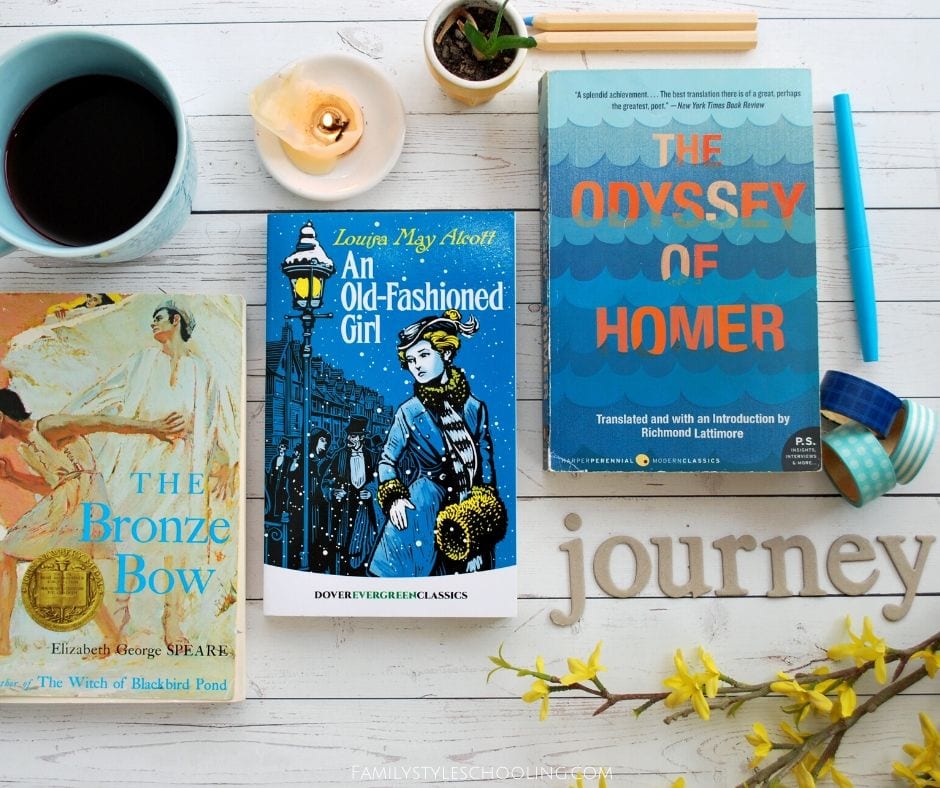
As my husband re-read The Odyssey he appreciated Odysseus' leadership in new way. It is a story rich in detail that you just can't absorb in one reading. When he first read the story, he wondered why Odysseus wouldn't welcome the rest offered by the Lotus-eaters. It isn't until you realize the peril presented to the crew that you see the wisdom of Odysseus. Their goal was to get home, and if they succumb to the "rest" offered by the Lotus-eaters, they would never have made it home.
5. You Can Dig Deep
Recently I've been digging deeper into a really fascinating book: A Passage to India. This story presents what seems to be a surface plot and then throws you off when you realize the story was really about something much deeper.
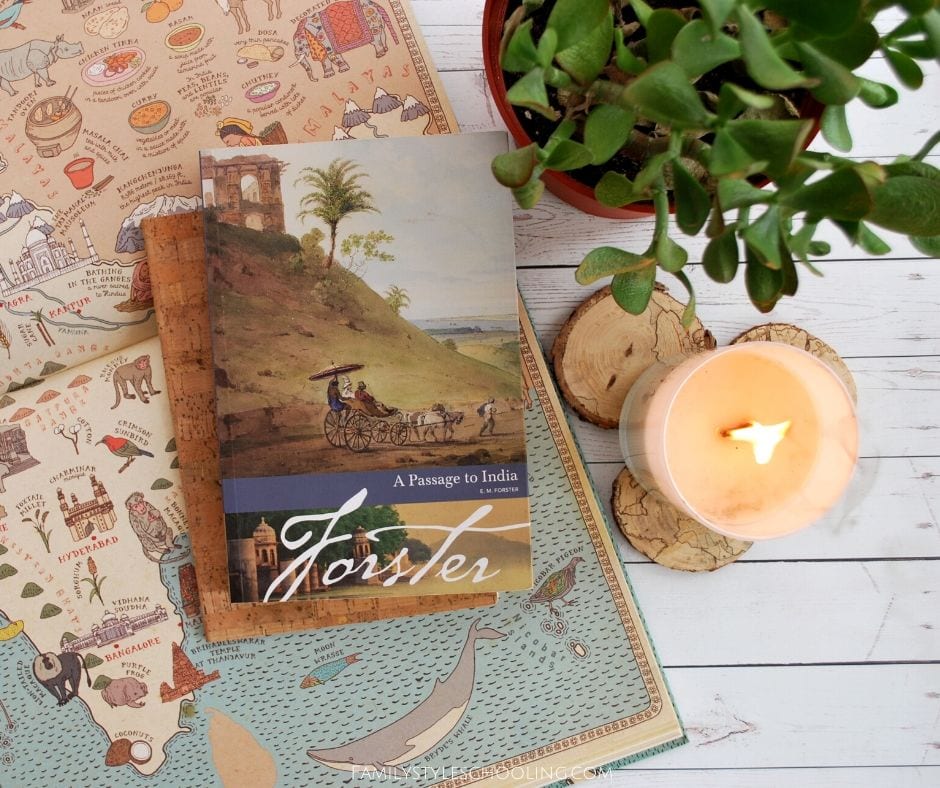
E.M. Forester throws Indians and English together in unexpected ways in his story A Passage to India set in the time of the British occupation of India. It seems like the climax of the story is reached in the courthouse scene, however there are thirteen chapters of story left after that issue is over. When I was reading the first time, I wondered: Is this the longest denouement in the history of the world?
Then I realized that the story was asking a much deeper question: Can an Englishman and an Indian be friends? It is in this question that you can follow the author deep down into the heart of the story and feast on the riches offered.
6. The Story Becomes Part of You
Last summer we heard Allan Arnold speak at the OYAN Writers' Conference. His book The Story of With: A Better Way to Live, Love & Create is one part biography and one part allegory. It is one of those stories that changes how you see the world. As you journey through a dream-like world with Mia, you find yourself asking questions about identity and who are you letting define yours. It is so powerful.
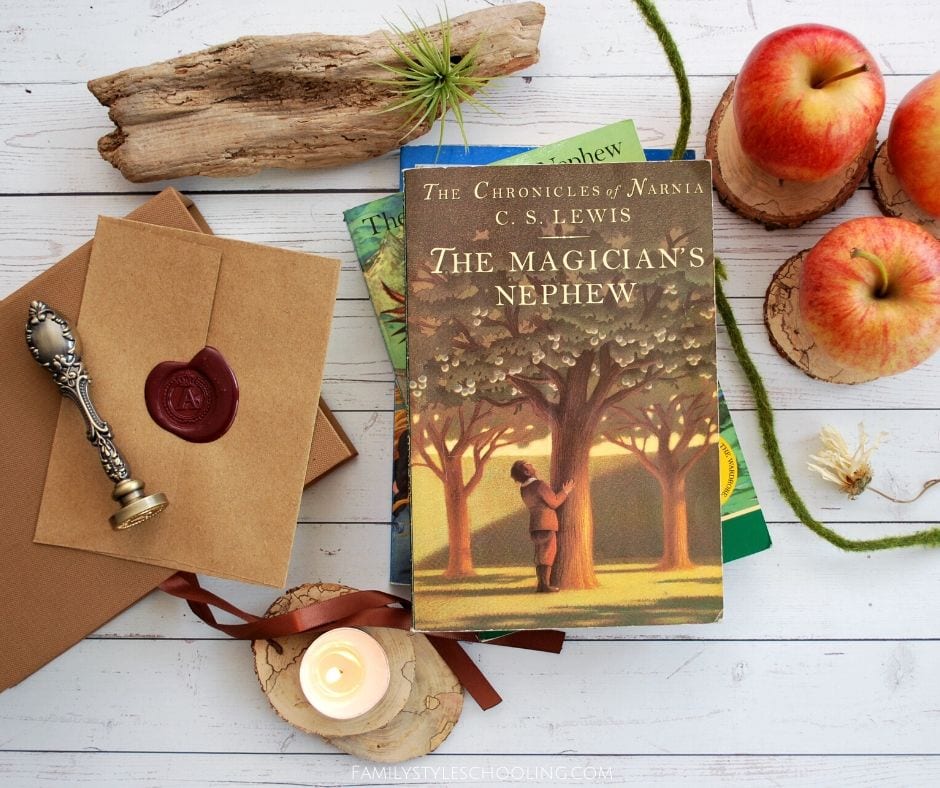
Other stories that have shaped our response to this present world are the Narnia series. It doesn't always have to be super serious however. If my youngest ever comes out in the morning after a good night's sleep—you know like when her hair is going every possible direction—we like to greet her with a hearty: "By the Lion's mane!" And that is exactly what her hair looks like! She takes that much better than embarrassing her for her unruly hair. #CurlyHairIssues
7. The Work Decreases/Enjoyment Increases
It definitely takes work for me to orient myself to the world of a new book. I am meeting new characters, navigating new roads, and considering new ideas. It can be a lot to take in at once. After being worn out by a good book, it would be understandable to want to avoid that feeling again. However, that isn't how it works. All of those new things are now familiar at least.
Have you ever been the new kid at school or visited a church for the first time? It is definitely overwhelming to take in all the names, figure out where you're going, and take in all of the newness. It's only ever new once. Each time you go back, the more familiar it becomes.
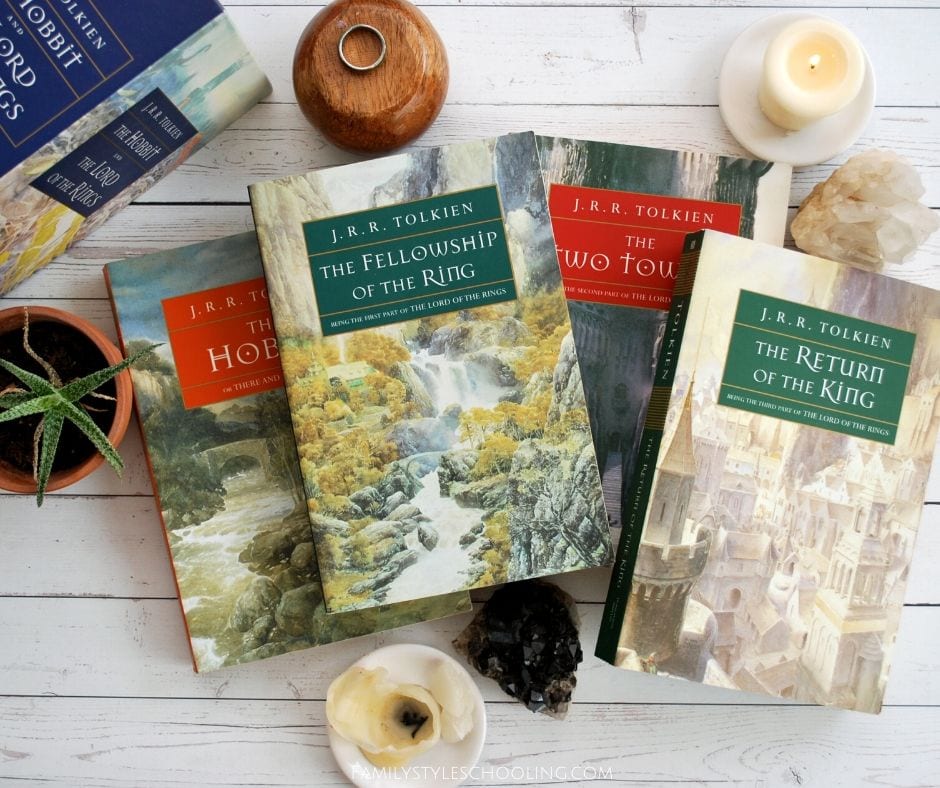
Andy loves Tolkein's Lord of the Rings series. One of his favorite parts of re-reading the series is finding the jokes sprinkled throughout. You don't catch many of them in the first reading because they are kind-of like "inside jokes" that are only for readers that have come back more than once.
8. You Can Re-experience the Feelings
My youngest loves to read The Phantom Tollbooth. She loves quirky stories, but she loves this one because she loves experiencing the camaraderie between the characters and soaking in the good humor. It makes her happy.
I can't wait until I can make it back through the Wingfeather Saga . The atmosphere of the fantasy world that Andrew Peterson creates is captivating. What is so powerful about this series to me though is the depth of relatability with each of the characters. I want the main family to be some of my best friends. I love spending time with them.
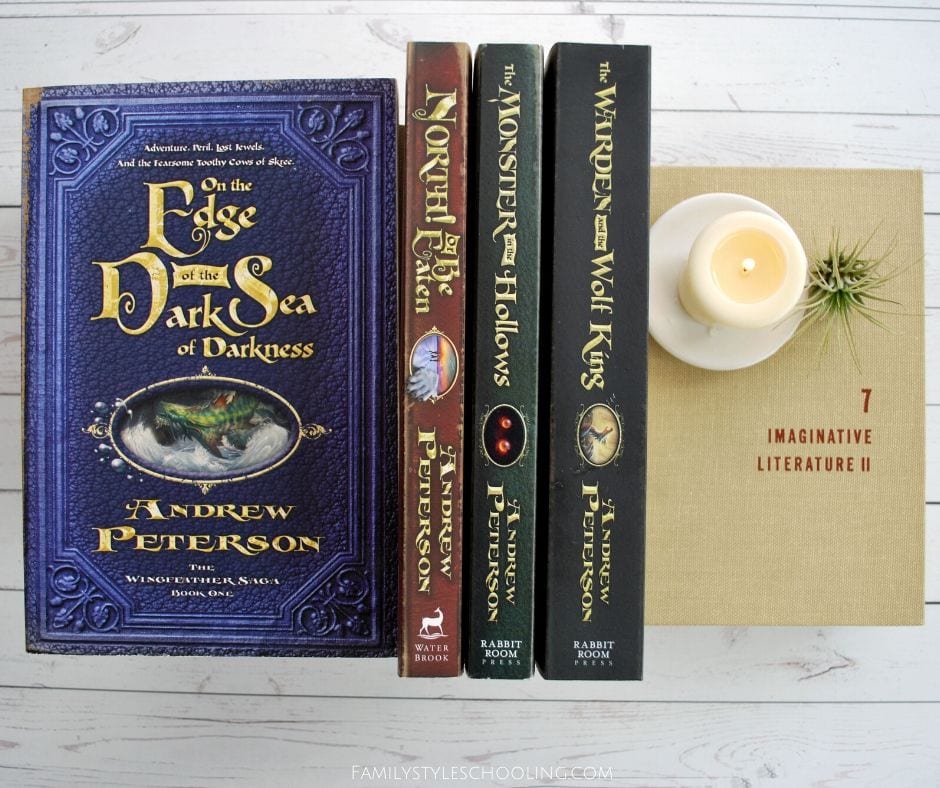
My husband finds the atmosphere of Brothers Karamazov fascinating. Dostoevsky captures the society of nineteenth-century Russia brilliantly. Not only does he draw inspiration from the seasons and bareness of the landscapes, he presents the struggles of the protagonist through the buildings and cityscapes. I don't know that this is a place that I want to dwell, but it is a rich pool of wisdom that is worth returning to.
9. Soak Yourself in Beautiful Syntax
While you may not love the story, there are some writers that just know how to word things in such a way that awaken your senses and imagination. If you've read Anne of Green Gables with your kids, you might find them rephrasing a common sentiment like, "I'm bored," with, "This place has very little scope for the imagination."
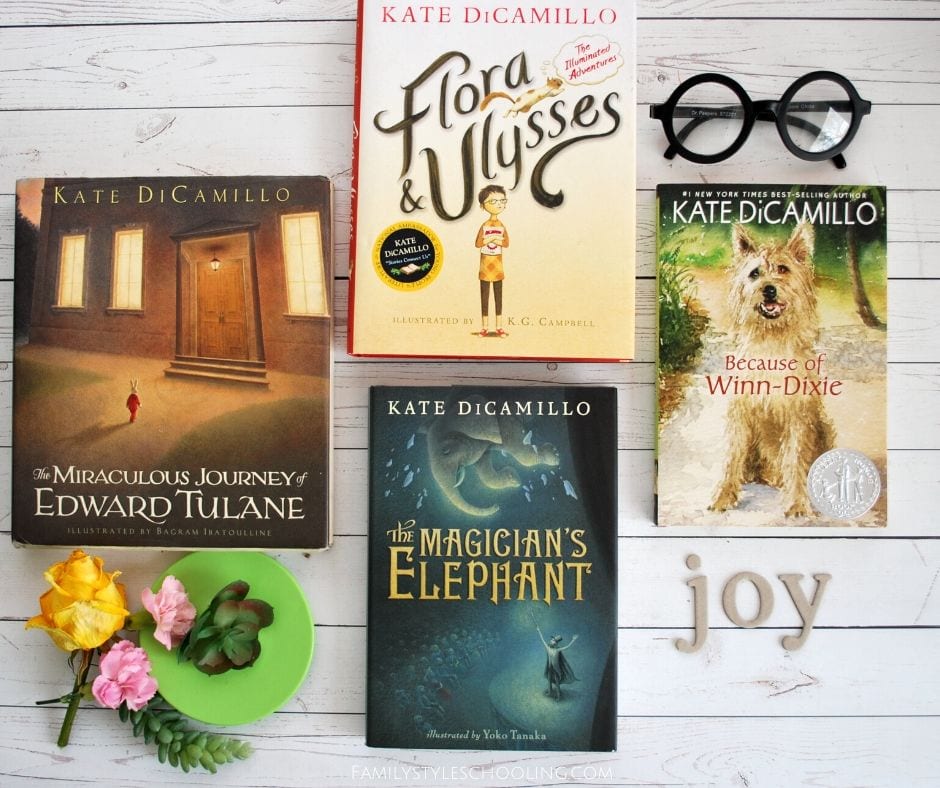
A book doesn't have to be an incredibly hard read for the author to be an incredible word-smith. Kate DiCamillo's books are excellent examples of this that even the youngest readers can enjoy. Here are some of our favorites:
- The Magician's Elephant
- The Miraculous Journey of Edward Tulane
- Because of Winn-Dixie
- Flora & Ulysses: The Illuminated Adventures
- The Tale of Despereaux: Being the Story of a Mouse, a Princess, Some Soup, and a Spool of Thread
10. You Become a Better Reader
If you read and re-read challenging books, you inevitably become a better reader. It's like strength training. Ultimately, there is one book that has been the best-selling book of all time: the Bible. Since it is the way that God has revealed himself to man, it would make sense that we would want to read and re-read it.
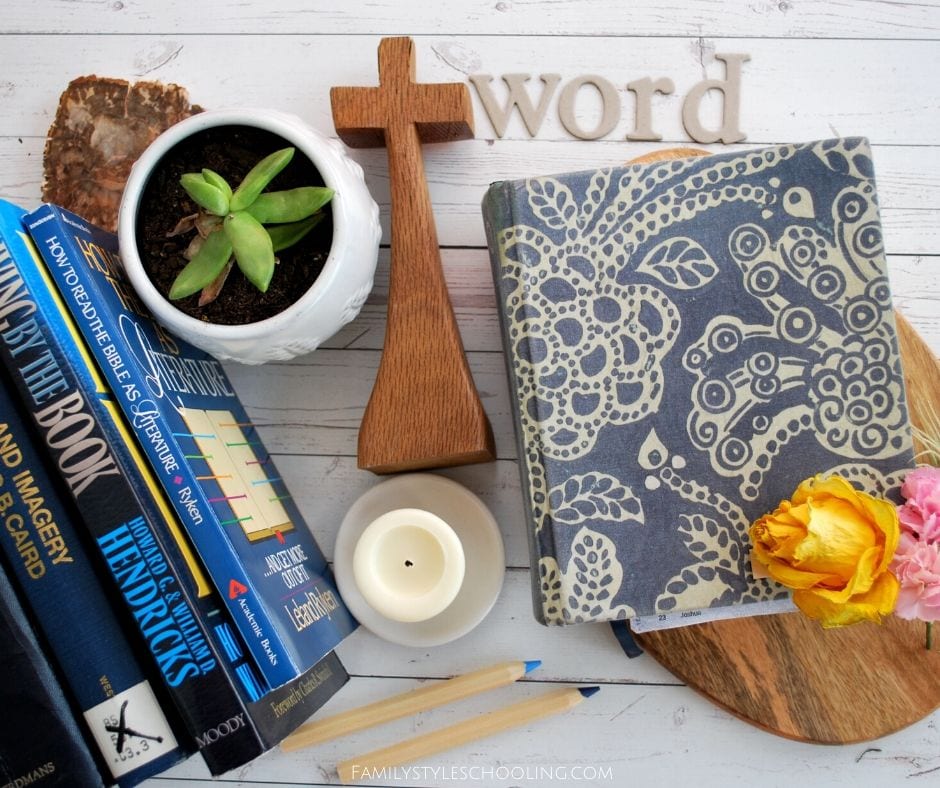
Books are also a great way to learn how to become a better reader of God's Word. Here are some of my favorites:
- Living by the Book: The Art and Science of Reading the Bible
- How to Read the Bible as Literature
- How to Read a Book
- Grasping God's Word
Reading is a worthy pursuit and it will take you a lifetime.
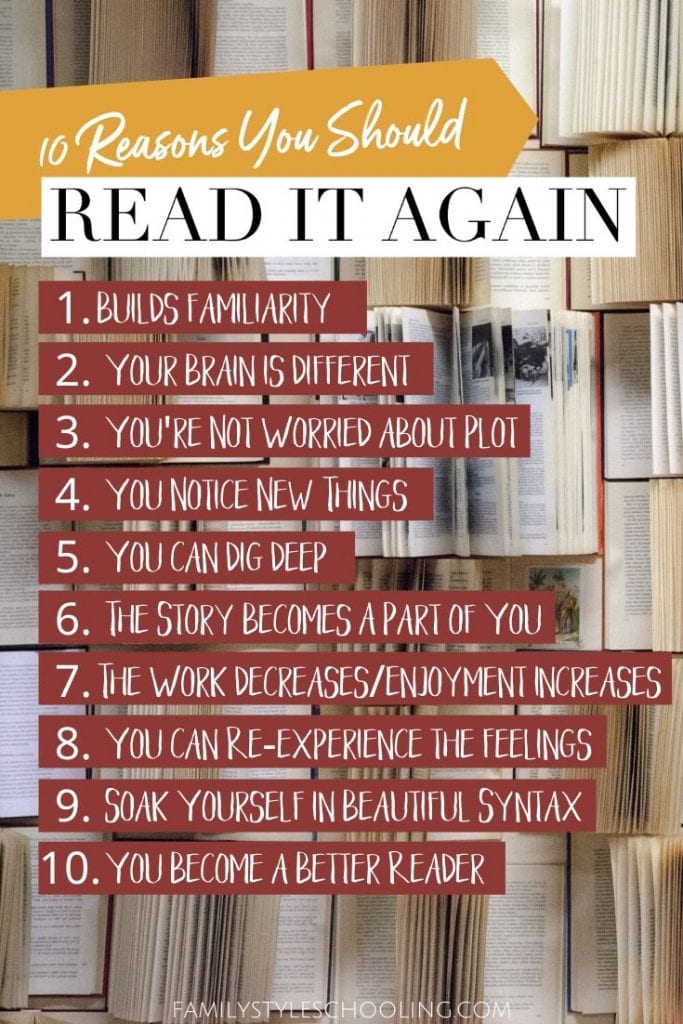
What are some of your favorites to read again?
Betsy Strauss is an unexpected homeschooler, mother of three, who is in a relationship with a sweet man for life. She loves reading books, drinking coffee, and learning anything with her kids.

